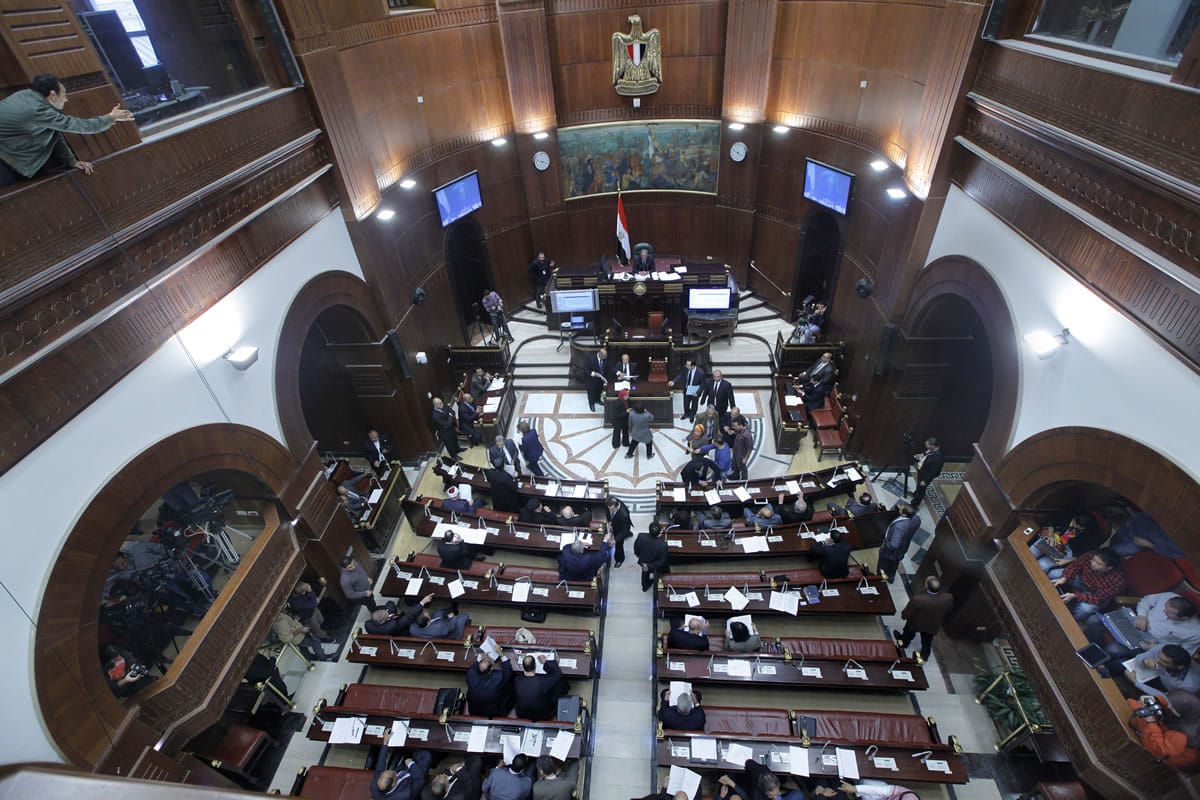CAIRO — The panel amending Egypt’s suspended constitution began voting Saturday on some 250 changes, the first step toward democratic rule following the July military coup that ousted the country’s president.
The constitution before the 50-member committee makes drastic changes in ensuring civil liberties, fighting discrimination, criminalizing torture, protecting religious freedoms and giving lawmakers power to remove the president. Yet the draft also allows Egypt’s powerful military to choose its own chief and try civilians in military tribunals.
The constitutional changes come amid a heavy handed crackdown on dissent that’s left the country largely divided between supporters and opponents of the military that toppled Mohammed Morsi, the country’s first freely elected president.
“This is the path of rescue from the current condition,” said Amr Moussa, the elder Egyptian statesman leading the constitutional panel. “It is the transition from disturbances to stability and from economic stagnation to development.”
The military suspended the Islamist-drafted, voter-approved 2012 constitution in the July 3 coup that ousted Morsi. The constitutional panel, dominated by secularists, has been working on changes as part of a military-backed timeline that calls for voters to approve it. It plans for parliamentary and presidential elections to be held early next year.
On Saturday, 48 panel members began voting on the changes in a session aired live on state television. Most articles passed unanimously. One issue the panel faced was how the principles of Islamic law, or Shariah, already called the main source of law in Egypt, should be defined. Some feared a definition would allow for a heavier implementation of Shariah and the creation of a religious state.
The panel voted to refer to the Supreme Constitutional Court’s limited definition of Shariah’s principles. That “didn’t appease the Islamist representative,” said panel member Kamal el-Helbawi, an independent who once belonged to Morsi’s Muslim Brotherhood.
The panel voted for an amendment banning slavery, human trafficking and “the sex trade.” The panel’s sole Islamist party representative opposed the amendment, as some say the article restricts early marriages.
The panel also voted in favor of abolishing the upper house of parliament, the Shura Council.
Among articles the panel will vote on today is one allowing lawmakers to vote out an elected president and call for early elections if they have a two-thirds majority. Another allows parliament to prosecute the president for “violating the rules of the constitution.”
A proposed change also prohibits the establishment of political parties on religious grounds, meaning the Brotherhood’s Freedom and Justice party and Al-Nour, the political arm of Salafi Call movement, could be banned.
Once approved, the panel will hand the draft constitution to interim President Adly Mansour. He has a month to call for a public vote on it.
Meanwhile Saturday, a few miles from where the panel met, clashes broke out between police and protesters. The clash grew out of anger over the arrest of 24 activists Tuesday.



